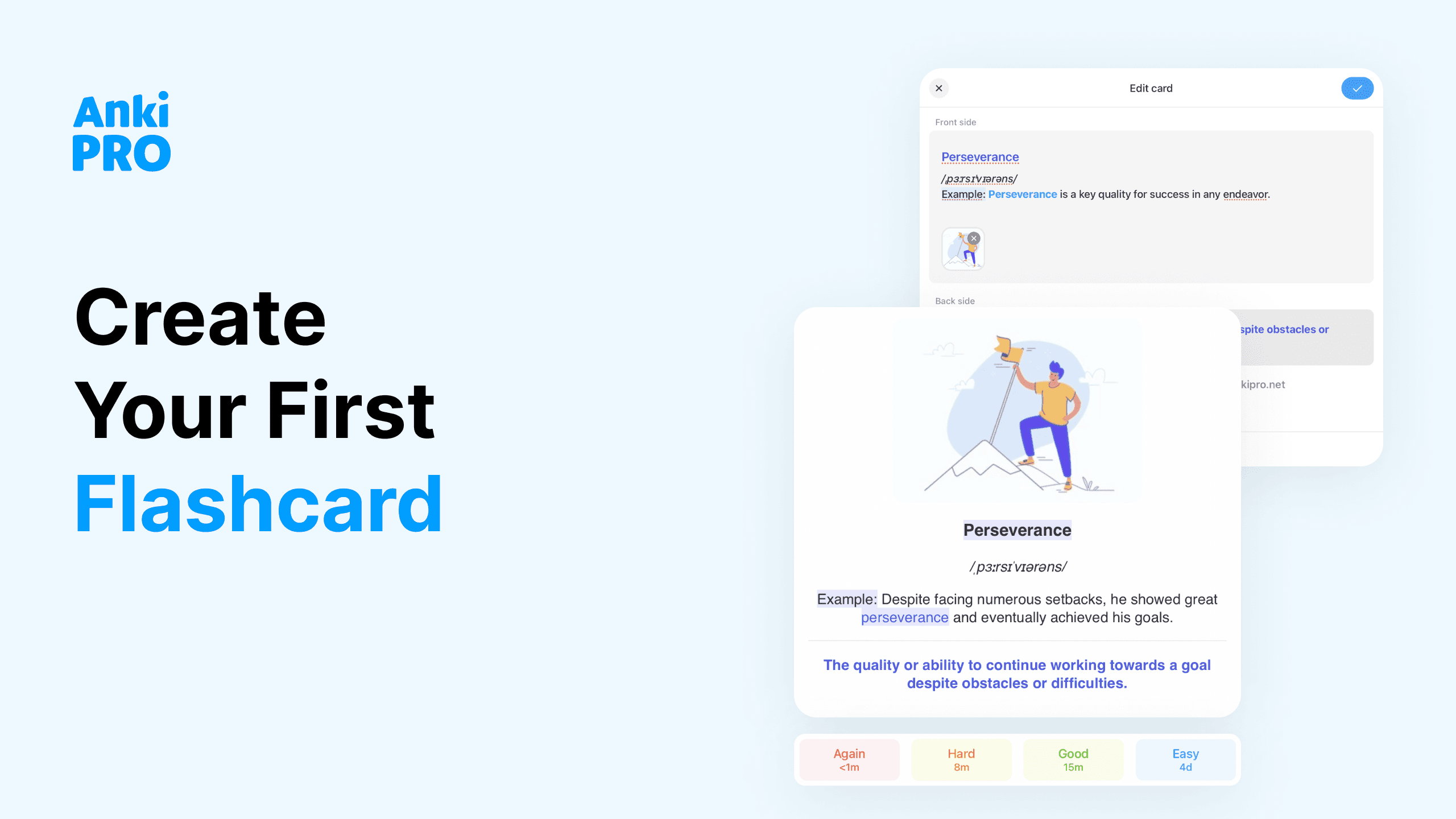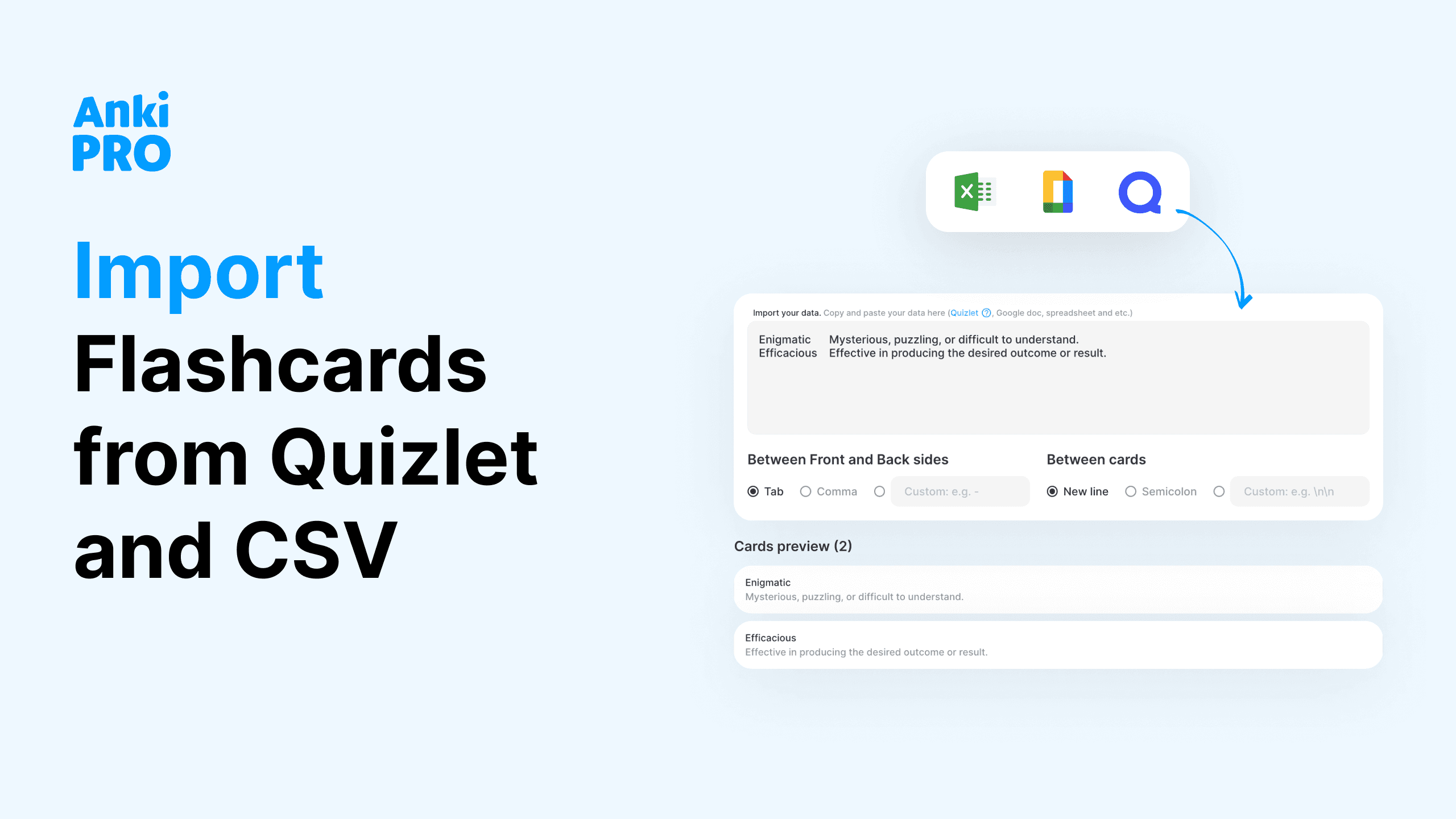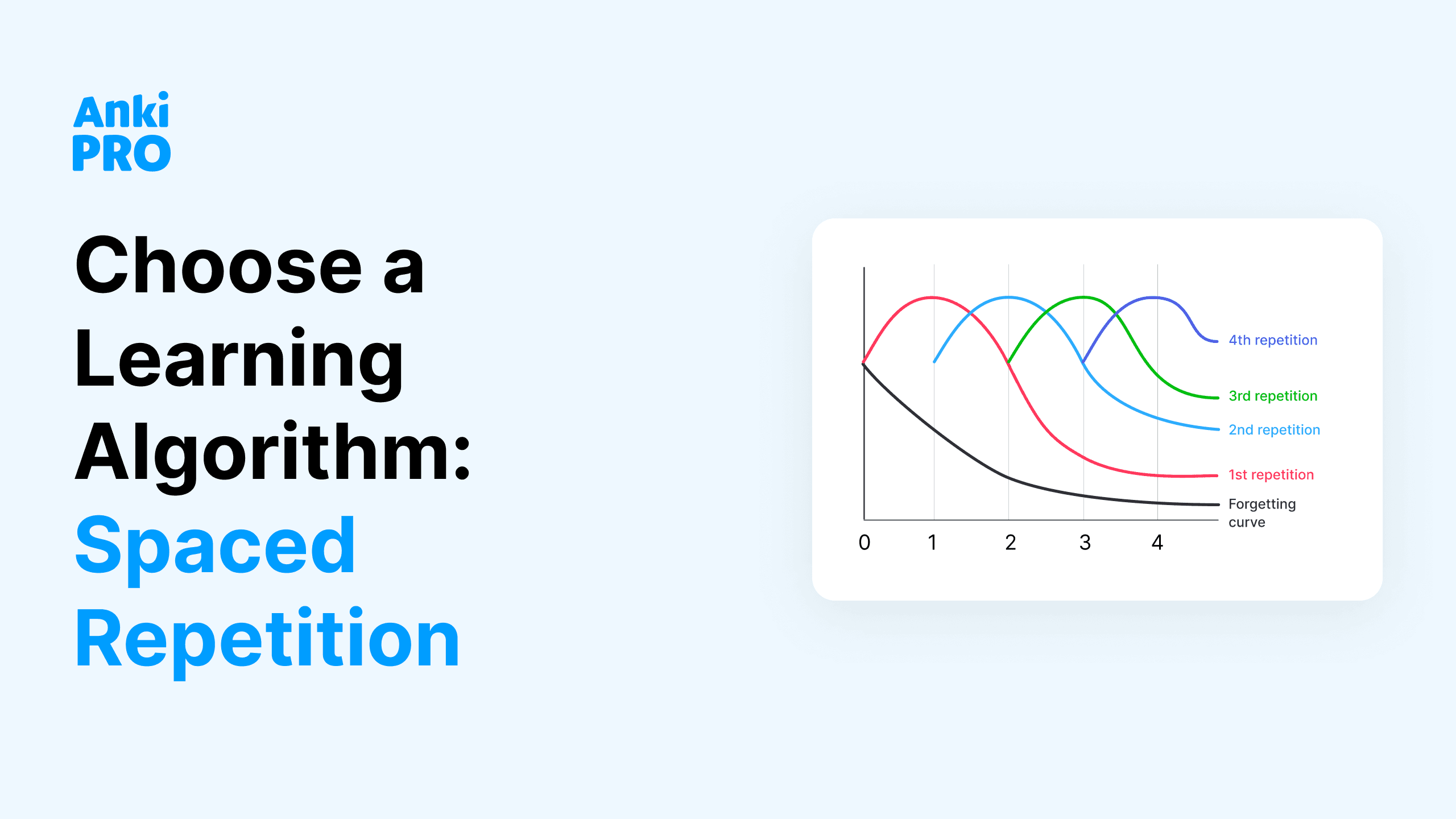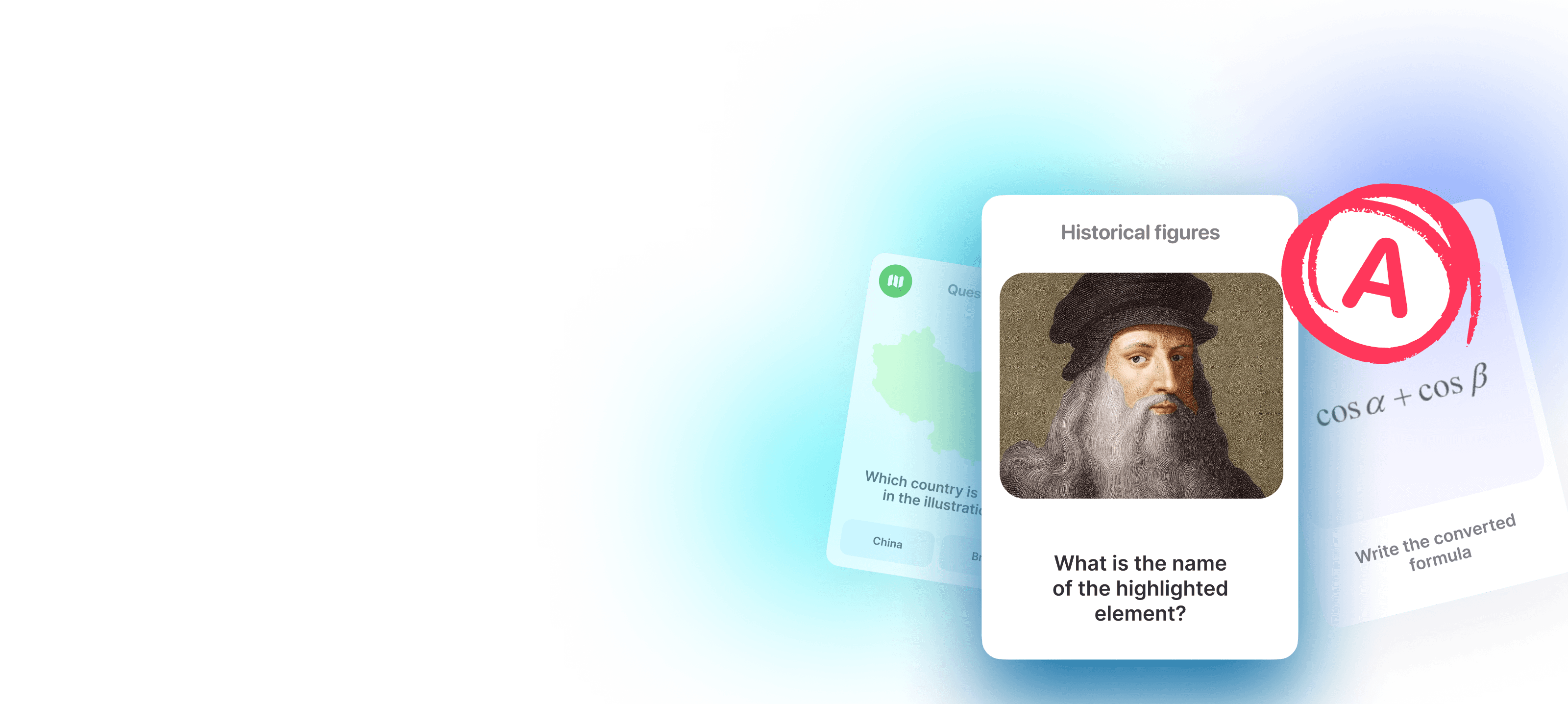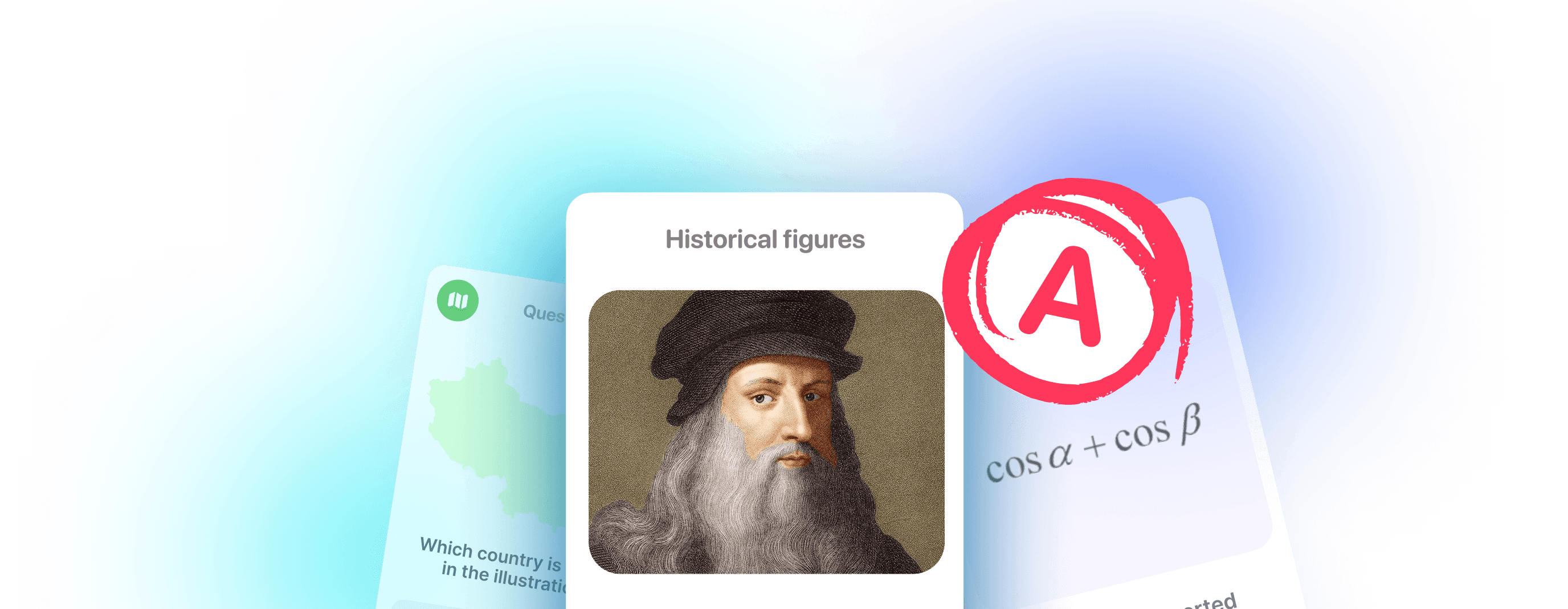Everyone understands how important it is to learn new words when studying a Japanese language. However, few people know that doing this can be extremely fun and absorbing. The flashcard method was proposed back in the 70s by the German scientist and journalist S. Leitner, justifying it with the principle of interval repetition. Training with flashcards:
- improves observation skills;
- increases the speed of thought processes;
- immensely develops photographic memory;
- trains attention.
Thanks to flashcards, when solving problems, Japanese language learners need a quick glance at the task to grasp its meaning!
Why is Learning Foreign Words with Decks Effective?
Without a doubt, the use of flashcard decks in Japanese language lessons can give huge positive results. The thing is that students learn to select, structure and remember key information, as well as reproduce it later. This method of learning foreign words assists in developing not only creative and critical thinking, memory and attention of students but also making the learning process engrossing, entertaining and fruitful.
- First of all, it is worth noting that flashcards automatically recall information in a random order, unlike lectures. Thus, neural connections are built between meaning, phonetic meaning, and spelling.
- Flashcards also aid mnemonic memory by associating visual representation with meaning.
- Decks are limited to limited space. Simply put, a rectangular area of bright color implies a marvelous tool for holding attention.
- Flashcards naturally promote repetition, which is a key factor for effective learning. What counts here is that nobody remembers everything the first time. Our brain consumes up to 20% of all the energy consumed by the human body. Accordingly, our memory is naturally lazy. To cut a long story short, it tries to forget everything that seems unused to save energy. That is why only regular repetition convinces our brain that this information is essential.
- Flashcard decks give Japanese learners instant feedback since there’s no complicated scoring here. The answer is either right or wrong.
More than that, you can make flashcard decks yourself. This is a very creative process, especially if you have time for it. Nevertheless, today electronic services that facilitate the study of Japanese and other foreign languages are in great demand. AnkiPro is one of the most popular programs with flashcard decks.
This Japanese language learning platform helps you memorize new words, characters, and phrases by writing and practicing them on flashcards. It is noteworthy that cards are created independently but if you wish, you can download ready-made decks.
Top Japanese Decks 2024
Portals for learning the Japanese language are excellent simulators that assist you in quickly mastering grammar, expanding your vocabulary, and most importantly, learning to speak Japanese. Popular software with flashcard decks turns learning into an exciting game and also stimulates interest in learning new information. The user does not need to create a lesson schedule and rush to lectures at school or university. An application for learning Japanese from scratch can be launched in any free minute from your mobile phone or gadget. Here’s the top Japanese decks for 2024.
Japanese Numbers
Knowing Japanese numbers helps people better understand others and communicate more fluently in the language. If a person knows Japanese numbers, then he/she will be able to better navigate in other countries where this language is spoken. Many sports and games require knowledge of numbers, for example swimming, basketball and football.
Experienced teachers recommend starting to study numbers as early as possible. The best way to do this is in a playful way using flashcards. This deck implies a helpful language series that is designed to focus on learning Japanese numbers. There are approximately 61 notes here.
Japanese Verbs
Using verbs correctly is the key to understanding Japanese grammar. Verbs indicate actions and events that happen in a sentence. So, in Japanese, the verb is the core of grammar and the center of the utterance for it has a huge number of different forms. They are formed by changing the ending, adding auxiliary verbs and suffixes, or combinations of all of these.
This flashcard deck is a great way to get started on your journey to mastering the Japanese language. By memorizing these verbs with the AnkiPRO service, you will be able to express yourself clearly. The presented deck contains 254 notes.
Japanese Proper Nouns
Japanese proper names are unique in their own way. To begin with, this uniqueness is expressed in the visual representation of the meaning of the name or title in its entry. Since names are mainly written using hieroglyphs, they consist of one or more symbols that have their own meaning. So, when the elements with meaning are combined, a complex word is formed, which also has a certain meaning.
The presented deck contains 10036 notes. The use of proper names undoubtedly helps students master the main aspects of the Japanese language.
Japanese Animals
Acquaintance with the world of animals in Japanese allows students to develop interest in the language, broaden their horizons, and awaken cognitive activity. The theme In the Animal World provides ample opportunities for organizing a variety of games and creative tasks. This widely-used classic deck helps Japanese learners to pick up a language and understand 88 of the most common animal words.
Japanese Katakana Alphabet
Knowing the Japanese alphabet helps you write letters, emails, reports, and other documents in Japanese. An interesting topic to study is the katakana alphabet, which was invented at the end of the 12th century. It is curious that katakana was created specifically to simplify the task for those who do not yet know the letters and features of the language. The presented deck contains 83 notes.
Japanese Days and Dates
When learning Japanese, it will be helpful to learn how to talk about days of the week, months, and dates. Knowing the days of the week and dates is essential for organizing meetings, booking vacation hotels, and planning social events. The deck contains about 200 words needed for every day’s communication.
Japanese Nouns
In Japanese, unlike other foreign languages, nouns do not have grammatical categories of gender and number. A noun in Japanese implies a part of speech that denotes living beings, objects and phenomena. This deck has approximately 65 cards. The list will assist Japanese learners in developing their vocabularies.
Japanese Adjectives
Advanced Japanese adjectives help express complex emotions and thoughts. The adjective has tense and determines the politeness of speech. In this deck of flashcards, you will find a list of the 141 most commonly used Japanese adjectives to begin your journey of mastering definitions in Japanese.
Japanese Greeting Phrases
The Japanese language has a huge number of speech clichés, but greeting forms are most often used. A set of standard phrases for communicating in Japanese will help you start and maintain a conversation without awkward pauses. Don’t be afraid to talk to foreigners with this flashcard deck! Native Japanese speakers typically greet each other informally, so you can use these greetings when meeting friends, family, and people you meet in everyday settings.
Japanese Family Words
Words on the topic “Family” are one of the first sections that appear in the bookmarks of a beginning Japanese language learner. This is due to the fact that the development of speaking skills occurs on the basis of current topics that we want to discuss. Simply put, they surround us every day. This is family, work or school, leisure, hobbies, and the like.
We present you a list of words and phrases on the topic “Family”. We advise you not just to go through this list but also to thoroughly study it. The fact is that the topic of family is often discussed both in business and in everyday life.
Bottom Line
Flashcards are a tool used for language learning. They’re mobile and great for learning short snippets of information. Students are engaged and autonomous when working with electronic flashcard decks. Moreover, the efficiency of memorizing educational material increases. So, it is possible to carry out self- and mutual control. Don’t waste time and hurry up to register for a helping AnkiPRO program for learning foreign languages with decks.





